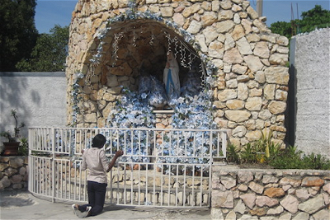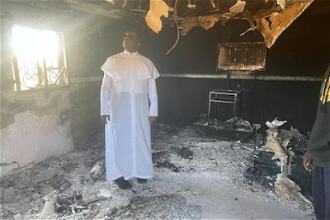Caritas welcomes new protection for migrant domestic workers

A high-level UN body has approved formal jurisprudence that elaborates the rights and practical recommendations for the protection of migrant domestic workers worldwide. In a vote yesterday, the UN Committee on Migrant Workers adopted the guidance in the form of a “General Comment” that interprets the 1990 International Convention on the Protection of the Rights of All Migrant Workers and Members of their Families, one of the nine core international human rights treaties.
Domestic work accounts for as much as 10% of total employment in some countries, yet almost every country of the world excludes domestic work from its national labour laws and protections. Working in private homes, the workers are almost entirely unseen and unprotected. Estimates suggest that well over half of all domestic workers in many countries are migrant. As noted in the General Comment, “migrant domestic workers are at heightened risk of certain forms of exploitation and abuse.”
Women, who are the vast majority of domestic workers worldwide, and child domestic workers are exceptionally vulnerable.
“Our members around the world, and particularly in Asia and the Gulf countries, have long been concerned about the suffering of these workers,” explains Johan Ketelers, Secretary General of the International Catholic Migration Commission, which together
with Caritas Internationalis was one of the principal non-governmental organizations that worked on development of the new guidance. Over the years, ICMC itself and with partners has operated safe houses and shelters in Asia, the Middle East and Europe to provide rescue, protection and assistance to maids and other domestic workers fleeing abusive conditions, from being locked in the house and forced to work twenty-hour days, seven days a week without break to battery and sexual violence at the hands of their employers.
This is the first time that such a high-level international body has taken up their plight as a group directly. This is also the first time that the Committee on Migrant Workers has adopted formal guidance under the 1990 Convention. “The fact that this guidance deepens application of one of the core international human rights treaties is extremely important, and we welcome it,” notes Mr. Ketelers, “The new guidance is also relevant to the adoption by the International Labour Organization of a separate international rights convention pertaining to all domestic workers, which is expected in June 2011.”
The 1990 Convention has been ratified by 44 countries, many of which are the origin of millions of domestic workers worldwide, including Bolivia, Ecuador, El Salvador, Ghana, Honduras, Mexico, Morocco, Nigeria, the Philippines and Sri Lanka. Bangladesh, Cambodia and Indonesia are among the other countries from which large numbers of migrant domestic workers originate that have moved towards ratification by signing the Convention.
To ensure that the guidance was evidence-based and would be effective for the protection of rights, ICMC and Caritas worked with the Office of the UN High Commissioner for Human Rights and the International NGO Platform on the Migrant Workers Convention to gather for the Committee research and experience from around the world. A synthesis of that input and reference to information submitted from 75 countries in the separate ILO process is available at http://civicrm.icmc.net/sites/all/modules/civicrm/extern/url.php?u=118&qid=117857.
“We were struck at how commonly the rights of migrant domestic workers are violated, cross-cutting borders, cultures and all regions,” explains Mr Abdelhamid El Jamri, Chair of the UN Committee on Migrant Workers. “The new guidance addresses abuse that is worldwide, rights that are universal, and practical recommendations that have global application. There is no cultural exception to the obligation to respect basic human rights.”





















